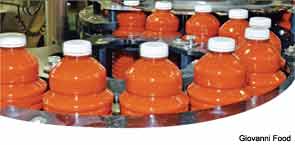
As this year marks the 10th anniversary of the current Good Manufacturing Practices (cGMP) Coalition—formed by 60 food companies and food trade associations working with the FDA to revise guidelines for preventing adulterated foods in production, packing, and holding facilities—it seems a good time to review the role GMPs play today in the industry. As well as serving as the basic principles guiding personnel, equipment, facilities, production, and process controls, GMPs relate directly to Hazard Analysis and Critical Control Point (HACCP) programs, and serve as building blocks for Global Food Safety Initiative (GFSI)-recognized food safety and quality standards. SQF, BRC, FSSC 2200, and other global standard schemes are growing in importance as retail customers demand certification from their food suppliers. GMPs also play an increasingly vital role as the Food Safety Modernization Act (FSMA) emphasizes requirements for a food safety plan that are similar to what is needed for a HACCP plan.
Giovanni Food Company knows all about HACCP plans and globally recognized food safety standard certification. The Syracuse, N.Y.-based company makes and sells salsas, spaghetti sauces, and juices to retailers as well as to the food service industry. Giovanni incorporates GMPs as fundamental prerequisites to their HACCP programs, including the juice HACCP program that is FDA-mandated. In turn, their HACCP programs tie into the SQF Level 2 certification that Giovanni received in 2013.
A couple of years ago, Giovanni underwent a Cook and Thurber audit through NSF International, an audit that “doesn’t have the same recognition within the industry as SQF,” says Alan Patapow, quality manager at Giovanni. “So when it came time to renew our audit, we thought SQF would be more advantageous to us.” They stayed with NSF for the SQF audits; NSF also oversees Quality Assurance International (QAI), the auditor of Giovanni’s organic certification and soon-to-be gluten-free certification.
“SQF seemed more suitable to us than other GFSI-recognized food safety standards,” says Patapow. “BRC is a lot more involved, and we didn’t feel we needed it all.” A lot of BRC deals with marketing of goods in Europe and while Giovanni Food exports to Israel, Asia, and Canada, they don’t do much business in Europe. Unlike the BRC standard, SQF requires a full-time, onsite standard practitioner employed at the company before, during, and after audits. Patapow is the SQF practitioner at Giovanni; he underwent training at a NSF workshop prior to taking up his role in 2012.
Patapow explains that there are modules within the SQF code that are either general—such as Module 2 that emphasizes food safety through traceability, recall, validation, verification, and management commitment—as well as modules more specific to Giovanni’s business, such as SQF Module 11 that has stipulations around GMPs for personnel hygiene and welfare, building construction, equipment, and pest control. “SQF basically mimics the HACCP program for food safety and risk assessment,” says Patapow, quoting part of SQF Module 2.4.3: “‘A food safety plan must be prepared in accordance with steps identified with HACCP guidelines’…” He also notes the similarity of that alignment with HACCP with that found in FSMA requirements.
GMPs relate directly to HACCP programs, and serve as building blocks for GFSI-recognized food safety and quality standards.
The SQF process “took us a little longer than we anticipated,” says Patapow, who spent about 18 months working on the certification project with a quality assurance assistant. “We had to get practitioner training out of the way, then develop the program. To help us out, we brought in a SQF consultant for several days to conduct a pre-audit. Based on those recommendations, we made the changes needed to our facility and processes, and completed the final audit for Level 2 certification in September 2013.” Giovanni demonstrated their exceptional food safety and quality control practices during the two-day facility audit by NSF.
ACCESS THE FULL VERSION OF THIS ARTICLE
To view this article and gain unlimited access to premium content on the FQ&S website, register for your FREE account. Build your profile and create a personalized experience today! Sign up is easy!
GET STARTED
Already have an account? LOGIN
